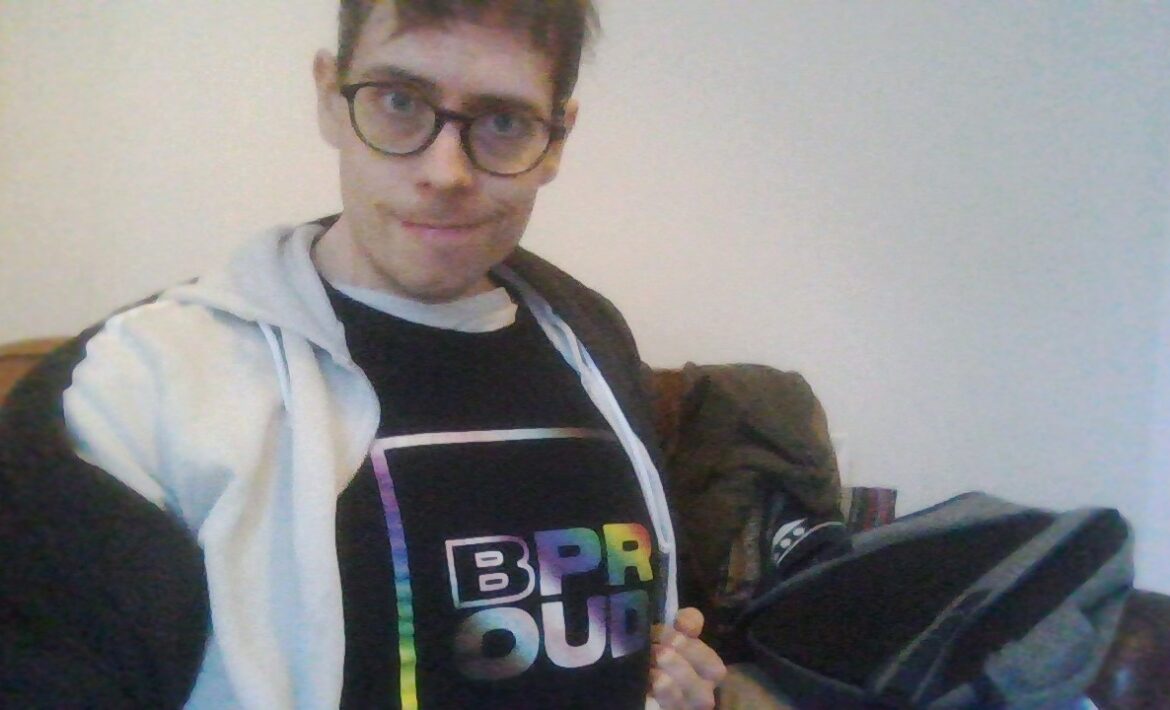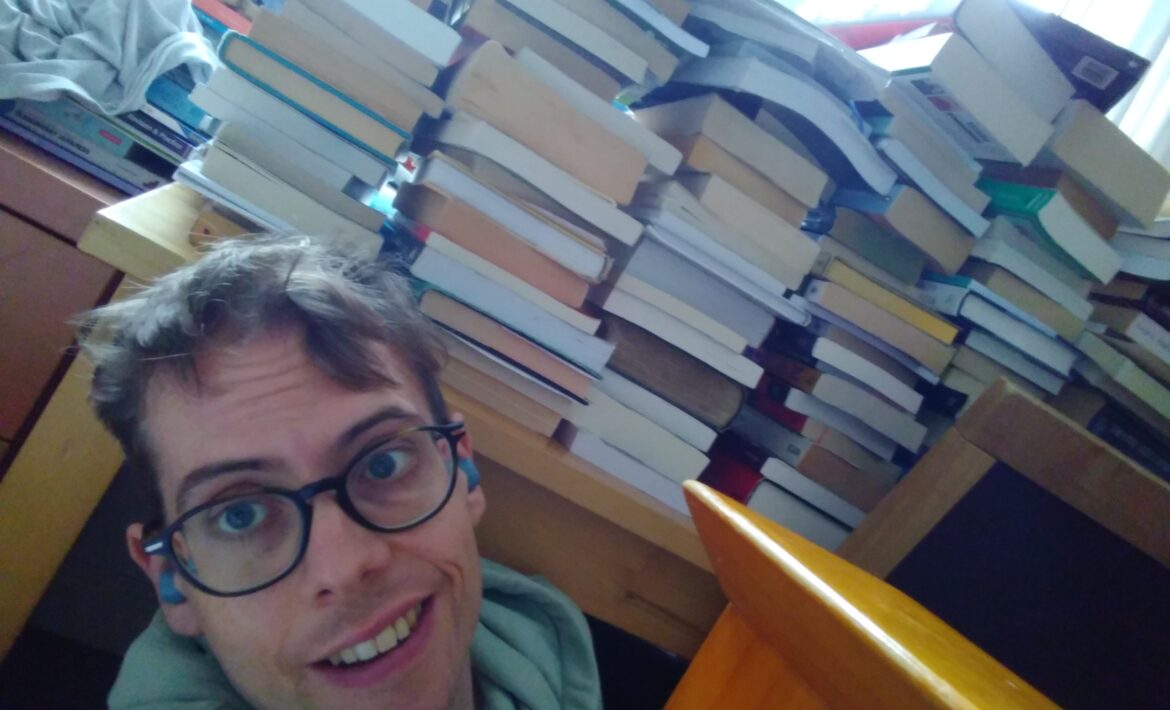Autistic in Times of Covid-19: Sunday 3rd May 2020 – Productivity and Spoons
These are a collection of thoughts that have occurred to me over the past few days and that might be useful. They are unedited, sometimes unfocused and might appear in different contexts afterwards.
This week wasn’t the best. After three weeks of all hands on deck, I fell off the wagon when it came to productivity. The issue this time was primarily fear of getting started. I knew that I had a week to work on my book. I ended up doing relatively little. I felt an anxiety bubble away underneath the things I did, as I was scrambling around, trying to find things to do so as not to write. I’d even done my taxes the Friday before!
But did I have a bad week? No, not necessarily. I know what happened that made me go wrong. I had two nights of bad sleep and one frustrating conversation riddled with misunderstandings on a third day. I was unable to do any productive work on both days. Therefore, I was unproductive 3 out of 5 days. On the other two, I did good and necessary work on the book, but not hours of sustained work. Saturday and Sunday I was still exhausted and did not do any work on either writing project.
I’m the kind of person who values myself on what I produce, not who I am. That’s what constitutes my drive to do good in the world, to make beautiful things and to help others. If I get a good few hours in and tick all the ‘to do’-boxes in my daybook, I have achieved. But there is always the problem: what about the days on which I’m not productive? In my case, I get irritated with myself, even if I allow myself rest time and Animal Crossing. I know it’s right for me, though it still feels like failure.
This is where I want to introduce the concept of spoons. This is a widely-used concept in disability theory to express someone’s limited energy to complete tasks on any given day. They are never consistent, though it’s possible to make overall positive contributions by eating well, sleeping well, resting, exercising and (for autistics) engaging with one’s special interests. Yet for me, it’s not like a bank account, where I can put spoons in by doing things right and take spoons out when I need to push myself. It’s way less reliable than that.
Some days, after several days of excellent self-care and appropriate rest, the spoon drawer is just empty. There’s nothing I can do about that, all I can do is rest. Yet like many autistics who value logic and reason highly, I cannot compute. How have I been caught out? Hadn’t I been trying hard enough? Didn’t I do my homework? I did both of those things. The frustrating thing is that my own capacity to self-regulate is not 100% under my control. I know that there is a limit to the things I can accomplish on a daily basis, that I need to take time off after stressful events and meltdowns mean immediate rest. It’s still not nice. I hate my own hypocrisy in not yet being able to practice what I preach. That puts me in a position where I’m liable to cycle into negative thinking. That, though, is more of a Jorik-thing rather than an autistic one.
When I was working at my first office job, I was told very quickly that my usual strategy of having a double focus (one eye on the work, one on wikipedia) was a sackable offence. I was told that I needed to focus on the work, and work alone. I became frighteningly productive, so my shyness and conversational oddness became something they were happy to put up with (all the while, my sleeping suffered, I was constantly exhausted and became seriously depressed). I was taught: work equals constant hammering away at the coalface. Do not stop, you don’t get paid for toilet breaks. Getting distracted means you might lose your job.
So how can I keep my productivity high enough to keep functional, whilst not burning myself out? Autistic burnout is a serious problem in the autistic community. Usually, these periods are relatively short and can be dealt with by taking rest. A day or two later and the person can once again function at their old level. Still, I’ve had longer periods (over two weeks) of burnout quite frequently, as well as depressive episodes in my life. The worst is when both come together. The more I push myself when I have zero spoons to give, I definitely fall into a spiral. The spoon bank may not have a ‘guaranteed win’-option, its ‘guaranteed lose’ options are plenty.
My biggest learning point at the moment is gaining the self-insight to know when I need to recover and when I can push myself. I often struggle to read my own body. That may have to do with alexithymia (please correct me on terminology), which manifests itself most strongly in me by a difficulty in assessing my own energy levels. So instead of beating myself up when I don’t have spoons, I have to start finding a different way to read myself.
The best way I can maintain my spoons is, paradoxically, exercise. When I do exercise, my brain recovers and actually gains spoons. But when I have a bad day, exercise can completely wear me out and make me utterly incapable of functioning. Again, monumentally frustrating. I’m literally doing the thing I’m supposed to do to give me energy, but instead my energy is taken away! What the hell does my body want?
I know that shouting at myself doesn’t help. But it is satisfying sometimes.
At my current work, I’ve sometimes come in whilst looking like a corpse on a day pass. My supervisors need to know that I’m not having a good one, so I won’t be asked to cover extra lessons. My students can see that I’m tired too and I have enough of a positive relationship with most of them that they allow me to function at 60% rather than 100, since they have those days too. My supervisors also know that if I don’t rest when I have a day like that, I will have to take time off sick.
Autistic people in the workplace should not be judged on their consistent productivity, but on the value of their output.
The bank of spoons† may less reliable than Northern Rock in a crisis (what, too soon?) but it’s also the solution. Since I started being aware of my limitations rather than simply pushing myself beyond breaking point, I became a lot more productive. This has led to me rethinking my relationship with stimming, writing and work.
In any case, I’m really happy with this blog! I think it turned out alright, after a low start, writing this has given me a lot of energy. This week I will try to put less pressure on myself.
Final thoughts:
1. I love my sunglasses, they’re the best. When I’m wearing them – even when I’m not in direct sunlight – I sigh with relief.
2. I was stuck researching a particular aspect of the book, struggling with my attention span and even basic reading. I ended up doing something my mother told me: “ask, ask, ask.” Congenitally shy and terrified of people, that advice has overall helped me more than it’s put me in harm’s way*. I asked the writer. We had a lovely back-and-forth over email and I ended up understanding far more than I would have working through the book alone.
This week’s questions are:
1. What is the most recent thing you’ve adopted for a better sensory day?
2. How do you monitor your own wellbeing? Do you rely on your intuition? If not, how do you find ways to cope?
All my love,
Jorik
† If I’m stealing this concept from someone, please make me aware. I’ll add a reference to the original author.
* Although I’m not suggesting people contact others out of the blue. If you’d like me to talk about autism and risk-taking, let me know.


